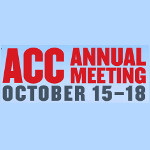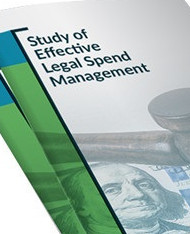By Norm Finkel
Schoenberg, Finkel, Newman and Rosenberg, LLC
The list of reasons why small law firms offer big advantages is well known—this is especially true for businesses that are mid-sized or emerging. But here’s a quick review. With a smaller law firm, seasoned attorneys are the norm, rather than the associates who typically handle day-to-day business for the big law firms. A smaller firm is a bit like the classic Avis commercial; they work harder. The attention given to the client is second to none. So, relationships between law firm and general inside counsel tend to be closer. Then, of course, there is the matter of fees; they tend to be a lot more reasonable.
With all these advantages, why would a client opt for big law?
Let’s say a small law firm has established its credibility with a long track record of great work. The relationship between inside counsel and the partners is solid. But one day, the client says, “Sorry, we have to go with the big guys on this one.” What does that mean? Is it a rejection of all the hard work and success? Does it erase all the great progress you’ve shared over the past few years? Not really. There are a number of reasons why a client might go big. For instance, there is the matter of self-protection when a major audit is in order. If something goes wrong, no one can say it was due to the fact that a small law firm was chosen for this arduous task. Or, perhaps a case may be the subject of intense national scrutiny. For public relations alone, the choice of a larger law firm to handle it may be most prudent, especially when internal counsel has a board of directors that must support the rationale. When such contingent factors come into play, it is no reflection on the smaller firm or general counsel and, for the most part, no threat to the established relationship. In fact, small firms have a vital role to play in cases such as a large merger or an audit, because they can bring the big law firm up to speed on day-to-day information that the larger won’t have access to.
When it’s best to bet on David rather than Goliath.
There are cases where trust in the relationship outweighs all other factors. Here is an example. I represented a former chairman of a bank. The bank sued my client for losses it suffered on SBA loans after the 2008 meltdown. The bank had a board and an SBA loan committee—both of which approved the loans. The bank, rather than looking at its own culpability, sued the former chairman and president. Two of Chicago’s large law firms were recruited to represent the bank and its board members and loan committee members. Our attorneys walked into the courtroom every day and faced an army of lawyers from multiple firms; even the judge commented on the cost of all those lawyers.
My firm litigated the case in state court and won, but we were denied legal fees. The bank appealed its loss, while we appealed the denial of fees. My client ran out of money long before the case went to trial, but we did not quit. He died tragically at the age of 65, shortly after the trial court’s judgment but before the appellate court rendered its decision. We were owed seven figures by that time.
The appellate court affirmed the exoneration of my client and reversed the decision denying our legal fees and sent the case back to the trial court for a determination of our entitlement to, and amount of, legal fees. After the court determined we were entitled to fees, the bank agreed to settle the matter. This occurred shortly before the court determined the amount of legal fees to be awarded. The family and widow were gratified by the outcome. Although we went up against two large law firms who had a client with immense resources, after a 5½-year ordeal, we won.
The future is starting to favor the Davids, but don’t write off the Goliaths just yet.
Trends are emerging that seem to favor the mid to smaller law firms. The 2009 “Bloody Thursday” that kicked off major layoffs at some of the biggest law firms brought with it a demand for lower fees. Of course, this opened a white space opportunity for smaller, entrepreneurial firms who could deliver more for less. Not only that, but because of technology some of the advantages that once favored bigger firms have evaporated. The giants once owned the biggest libraries and best information. But now, thanks to the digital revolution, small and big alike have access to the same data. Keep in mind, smaller firms tend to be more invested in their clients. The partners are responsible for the success or failure of their business; this goes further than just filling out a time sheet for hours. A concern with cost efficiency is part of their DNA. But as for the Goliaths, as Basha Rubin put it in an article for Forbes, “I’m not arguing that all big law firms will disappear entirely. Why should they? Many provide unparalleled service; they will continue to make sense for the biggest deals. The next time I merge my multibillion dollar corporation with another multinational multibillion dollar corporation, I certainly intend to hire one.” < https://www.forbes.com/sites/basharubin/2014/07/07/big-law-big-problems-2/#210f8e75db42>The general counsel of a Fortune 500, national health club chain that I’ve represented for over 35 years has repeatedly told me how much he appreciates my attention to his business and that the results he has experienced from using a smaller firm are “second to none.”
What are the takeaways for inside counsel?
I started my career in a firm of 15 to 20 lawyers. Six months into the job, I tried my first case and won. I would never have gotten that experience at a large law firm. Recently I hired an attorney from such a firm who was working 100 hours a week and couldn’t get any traction on his career. For what it’s worth, my advice to internal counsel is this:
· Keep the outstanding small firm that has worked so hard to win your business
· Remind them when an audit comes up or a case with national media buzz, that leaning on the big firm is simply a matter of self protection – not a dismissal but a fact of life in business
· Promote the great work of your smaller partner law firms to your board so that they can see the value
· Remember that business, technology and culture are in a state of evolution and the best partners are the ones who keep pace
Norm Finkel, senior partner and head of the the litigation practice at Chicago based Schoenberg, Finkel, Newman and Rosenberg, LLC.









